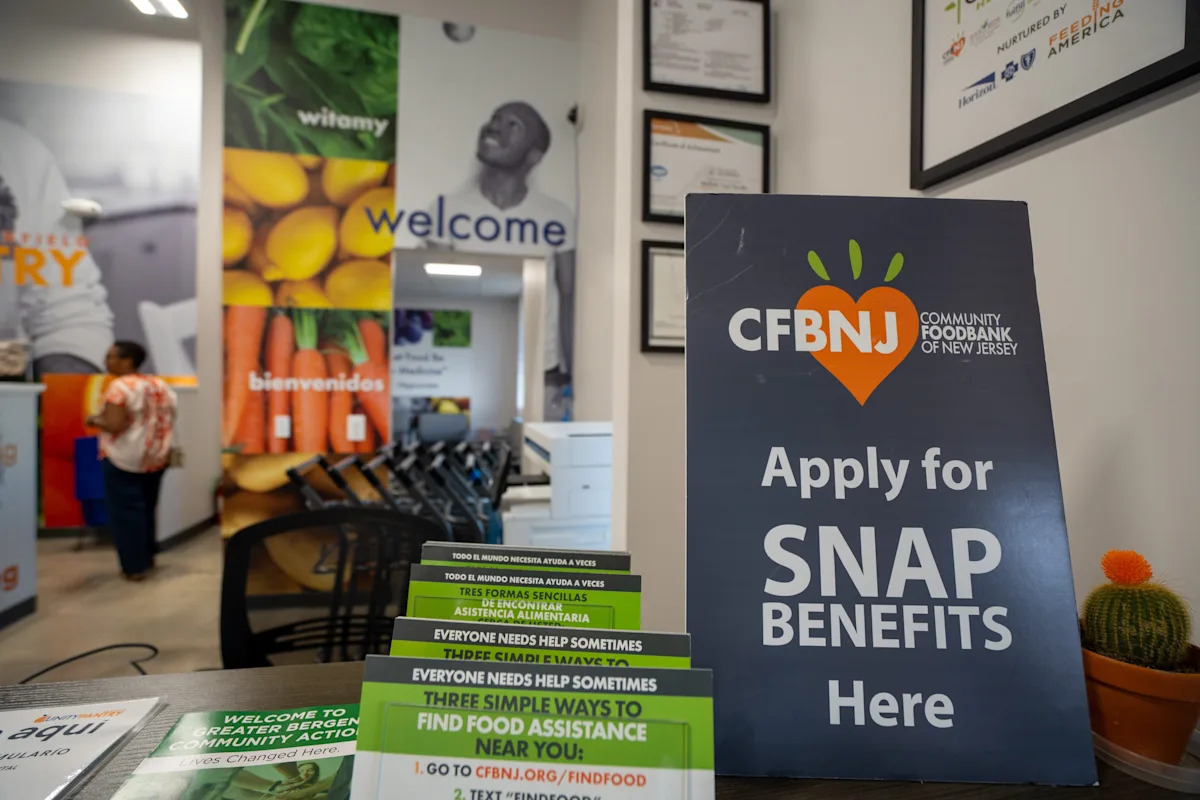Some Pennsylvania leaders are hustling to avert a lapse in November nutrition assistance benefits that help prevent nearly 2 million low-income residents in the commonwealth from going hungry.
Federal officials in early October notified states about the likely interruption in Supplemental Nutrition Assistance Program benefits, saying they’d run out of money to pay recipients because of the ongoing government shutdown.
More: SNAP benefits won’t go out Nov. 1. ‘The well has run dry,’ USDA says.
This would be the first lapse in food assistance in the program’s six-decade history. Keystone State officials say they are working on several fronts to keep assistance flowing to the families who depend on it.
“This is one of the most disturbing things that I have seen as a public servant,” Pennsylvania Lt. Gov. Austin Davis, a Democrat, said during an Oct. 29 briefing on the cuts. “The Trump administration is deliberately causing pain to people in need, people who rely on food assistance.”
Gov. Josh Shapiro on Oct. 28 joined a multistate lawsuit seeking to compel President Donald Trump’s administration to tap into reserve funds to prevent SNAP from halting during the shutdown. The Democratic states assert that the U.S. Department of Agriculture is sitting on more than $5 billion in reserves.
The USDA has argued it isn’t legally permitted to tap into the contingency money to sustain SNAP through the shutdown, although it previously released documents indicating the funds could pay benefits.
Trump’s administration blames congressional Democrats for rejecting spending plans that would end the federal closure and restore SNAP.
“Senate Democrats have now voted 12 times to not fund the food stamp program,” a notice on the USDA website states. “Bottom line, the well has run dry.”
Democrats have so far refused to pass a spending bill that does not extend subsidies making Obamacare coverage affordable to millions of Americans.
Pennsylvania Treasurer Stacy Garrity, a Republican who is running for governor, on Oct. 29 proposed offering a short-term loan to cover SNAP benefits for November, saying her office could reevaluate the financial assistance in ensuing months based on cash availability. Once the federal payments resume, the Pennsylvania Department of Human Services could pay back the loan with 4.5% interest, she told reporters.
“This solution offers a way to give vulnerable Pennsylvanians who rely on SNAP peace of mind that their families will not go hungry during these times of financial insecurity,” Garrity wrote in a letter to Shapiro.
However, a recent USDA memo indicated states “cannot cover the cost of benefits and be reimbursed.” Because Pennsylvania will not be repaid for November SNAP costs, Shapiro’s office said Garrity’s proposal won’t work.
“Governor Shapiro will not jeopardize the Commonwealth’s fiscal standing because Republicans in Congress cannot pass a budget,” the governor’s spokesperson, Rosie Lapowsky, said in a statement.
In another state-level move to protect SNAP benefits, Pennsylvania lawmakers want to use state rainy day funds to sustain the food stamp program through the federal lapse.
The proposal released by Democrats in the House and Senate would direct $50 million to help local food banks, send $10 million to the Meals on Wheels program serving seniors and people with disabilities and increase resources for the Pennsylvania Department of Agriculture.
More: How are SNAP benefits, food banks impacted by a government shutdown?
The funding falls far short of the roughly $366 million in SNAP benefits that go to Pennsylvanians each month, but these elected leaders say it would at least bolster food banks that are under tremendous pressure.
“This is an emergency,” Sen. Art Haywood, D-Montgomery, said in a statement.
In Pennsylvania, about 1.1 million families and 694,000 children rely on SNAP, according to the lawsuit Shapiro joined. On average, recipients get about $329 each month to help pay for groceries.
Bethany Rodgers is a USA TODAY Network Pennsylvania investigative journalist.
This article originally appeared on Erie Times-News: What are PA leaders doing about upcoming SNAP lapse?

